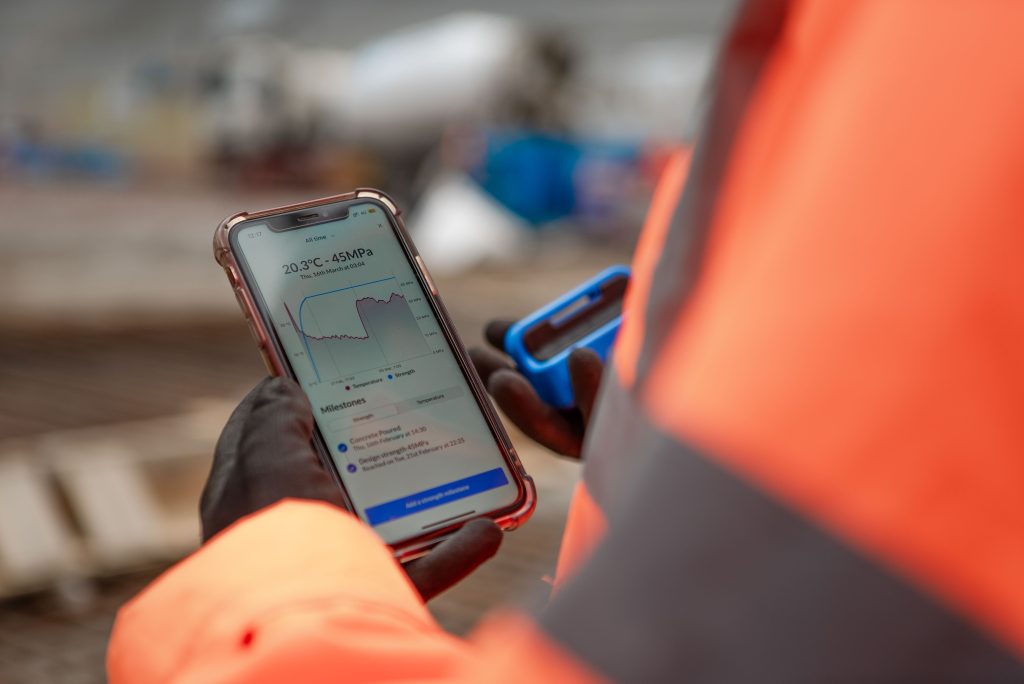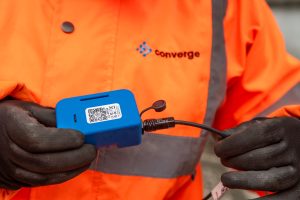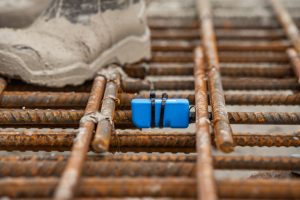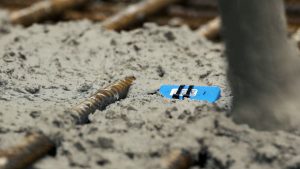
Tarmac, a CRH company and the UK’s leading sustainable construction materials provider, is offering its customers access to advanced AI-enhanced digital sensors that can help to optimise concrete mixes, lower carbon emissions and reduce on-site construction time.
Partnering with Converge, a UK-based specialist in construction technology, Tarmac is offering market-wide access to the new innovative technology that combines sophisticated wireless sensors with predictive artificial intelligence (AI). The sensors gather real-time data that, when combined with the AI modelling, can predict concrete strength, ultimately speeding up construction projects and reducing carbon emissions.

All of Tarmac’s customers will be able to specify the new technology, making it simpler and more accessible for small and medium-sized contractors to use and benefit from the innovation which until now has often only been available to teams working on major projects.
It follows an extensive exploration process of Converge’s technology by CRH Ventures, the venture capital arm of CRH, which led to a 12-month pilot by Tarmac to assess the solution and its commercial possibilities.
The technology is being made available to all of Tarmac’s concrete customers as a ‘one-stop shop’ as part of the company’s new CEVO brand, which is helping procurement teams to make informed decisions and specify lower carbon concrete mixes and solutions. The sensors are easy to use at approximately 3-4cm long and clip onto the steel reinforcements around which ready-mixed concrete is poured.
Andrew Campling, head of readymix concrete performance at Tarmac, said: “Offering market-wide access to innovative digital technology is vital as we work towards decarbonising the construction industry. This new partnership with Converge means we can offer even more innovations to customers as part of our lower carbon CEVO concrete brand.
“Alongside other solutions including our new online carbon calculator and the easy-to-use CEVO rating system, we’re providing our customers with the tools to help them reduce carbon on construction projects.”

The strength development of concrete in large structures can vary due to a number of factors including heat generation from the higher volume of material required, as well as the impact of weather conditions on site. The new technology’s predictive AI enables lower carbon concrete mixes to be accurately specified to account for these variables, reducing the reliance on the traditional method of concrete cube testing. This can reduce the time needed between pours of concrete, and ultimately reduce construction timescales.

Raphael Scheps, CEO at Converge, said: “The pairing of CEVO with Converge’s sensors and AI technology is a perfect match for concrete decarbonisation. By packaging our technology with Tarmac’s low embodied carbon mixes, contractors can build sustainably with the confidence that they’re getting all the performance they need. We’re proud to be partnering with Tarmac to offer leading AI solutions to the construction industry.”
Tarmac’s new CEVO brand has aligned the business’ extensive range of proven and trusted concretes with the leading industry standard ratings provided by the Institution of Civil Engineers (ICE) Green Construction Board Low Carbon Concrete Routemap.
Reducing carbon emissions from its products is a crucial part of Tarmac’s net zero strategy, which is aligned with the commitment of parent company CRH to reduce absolute CO₂ emissions across the business by 30% by 2030 (from a 2021 baseline) and achieve net zero by 2050.

